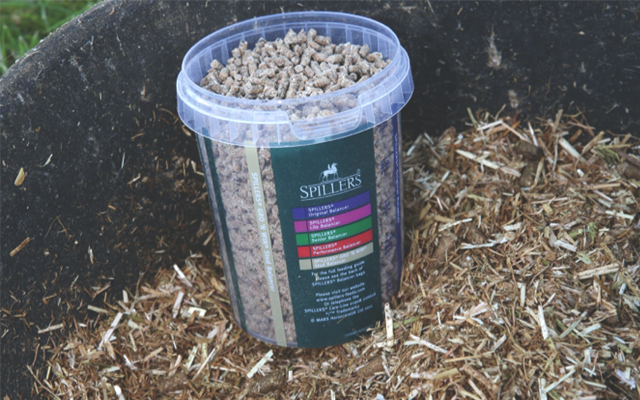Advertisement Feature
Spillers unpick the most common myths and misunderstandings surrounding feed balancers
Myth: balancers provide calories for weight gain
The term ‘conditioning’ is widely used in association with high-calorie products aimed at weight gain. With the exception of stud balancers, all balancers provide a negligible level of calories when fed at the recommended ration, regardless of the manufacturer. Even if balancers contain additives such as probiotics to support gut health, they simply will not provide the additional calories that poor doers need to gain/maintain weight.
Myth: balancers are expensive to feed
With a price tag of approximately £17-£39 per bag, a balancer may seem like daunting and costly investment. However, due to the low feeding rate (typically 500g a day for a 500kg horse), balancers are actually a very cost-effective way to ensure that good doers receive a balanced diet. Depending on pack size, a bag of balancer will typically last 30-40 days for a 500kg horse and, in the majority of cases, costs less than £1 per day to feed (and some less than 60p per day).
Myth: forage is enough for many horses
While forage can easily meet or even exceed energy (calorie) requirements for many horses, forage-only diets are unlikely to provide a balanced supply of vitamins, minerals and quality protein. Lysine, for example, is typically low in UK forage and average hay is unlikely to meet maintenance requirements, especially if fed at minimum rations for those on restricted diets. Hay and haylage can contain negligible levels of vitamin E, an important antioxidant which plays a key role in supporting muscle health and immunity. While vitamin E levels in fresh grazing are typically high, other nutrients like copper, selenium and zinc are typically low.
Myth: a balancer will make my horse excitable
No, it won’t. Diet can generally affect behaviour in one of two ways; by oversupplying energy or by providing high levels of starch and/or sugar. Due to the low feeding rate, balancers provide a negligible level of energy, starch and sugar when fed at the recommended ration, making them an ideal choice for excitable horses and ponies that maintain weight easily (or too easily!) on forage alone.
Q: Will a balancer give my laidback horse more energy?
Unfortunately the idea of finding a feed that is high in energy, but low in calories really is too good to be true. All balancers (except stud balancers) contain a negligible level of energy/calories when fed at the recommended ration which is why they are ideal for good doers.
Q: What is the difference between a balancer and a broad-spectrum vitamin and mineral supplement?
Unlike broad-spectrum vitamin and mineral supplements, balancers also contain additional protein, including key amino acids such as lysine and methionine. Depending on the balancer, it many also contain added functional ingredients such as probiotic live yeast or glucosamine.
For more FAQs visit www.spillers-feeds.com/faq/
TOP TIP
Consider which functional ingredients (if any) would be most beneficial to your horse. If you are already feeding supplements such as glucosamine or would like to provide additional digestive support, choosing a balancer that already contains these ingredients may be more cost-effective in the long run. If not, look for a balancer that simply contains the nutrients required to balance a forage-based diet.




